Dagstuhl-Seminar 24371
Extended Reality Accessibility
( 08. Sep – 13. Sep, 2024 )
Permalink
Organisatoren
- Gerd Bruder (University of Central Florida - Orlando, US)
- Thies Pfeiffer (Hochschule Emden/Leer, DE)
- Jeanine Stefanucci (University of Utah, US)
Kontakt
- Marsha Kleinbauer (für wissenschaftliche Fragen)
- Christina Schwarz (für administrative Fragen)
Gemeinsame Dokumente
- Dagstuhl Materials Page (Use personal credentials as created in DOOR to log in)
Programm
Extended Reality (XR), including Augmented Reality (AR) and Virtual Reality (VR), technologies are on the cusp of becoming mainstream. In 2019, about 6 million VR and AR headsets were shipped worldwide, with an estimated 16.5 million headsets in use in 2021, and predictions of over 50 million by 2026. By some estimates, this represents a $1 trillion market. Ideally, these technologies would be accessible to all who desire to use them; however, today, XR technologies are not accessible to millions of people with disabilities or impairments (visual, motor, cognitive), with incompatible physical characteristics (e.g., hairstyles and head shapes), with health conditions, and beyond. This includes children and the growing group of elderly people. In particular, the low accessibility of these technologies today hinders their widespread adoption worldwide, especially in the educational systems (learning, training), in industry (training, assistance), and in health care (rehabilitation, therapy, telemedicine). Thus, this Dagstuhl Seminar will address an urgent need in the field to ensure that all individuals can benefit from the applications that XR offers.
In the past, when new technologies emerged, making them accessible was always an afterthought. However, retroactive accessibility is never as effective as accessibility that is built-in from the start. Simply put, we must act to make XR accessible now.
The expertise of the organizers and seminar invitees will allow us to focus on specific areas of accessibility including visual, auditory, and motor disabilities or impairments as well as cognitive impairments that may occur with very young or older users. Research questions that we will focus on will include (but not be limited to) the following:
- How can we make XR more accessible for those who are blind or have uncorrectable low vision?
- How can we display captions or augment XR experiences for deaf individuals?
- How can we make controllers for XR compatible with various motor impairments?
- How can we adjust XR displays to accommodate smaller head sizes of young users?
This Dagstuhl Seminar builds off of the ground-breaking work that has been done in this area, in particular by one of the organizers, Dr. Azenkot, who co-founded the XR Access Initiative, which brings together people across industry, academia, advocacy organizations, and government. While these initiatives have been mostly confined to participants from the United States and Canada, this seminar allows us to expand the reach of these initiatives to a more international audience that will bring new perspectives and solutions. Making XR accessible to everyone will depend on the involvement of researchers from around the world.
 Shiri Azenkot, Gerd Bruder, Thies Pfeiffer, and Jeanine Stefanucci
Shiri Azenkot, Gerd Bruder, Thies Pfeiffer, and Jeanine Stefanucci
Please log in to DOOR to see more details.
- Bobby Bodenheimer (Vanderbilt University - Nashville, US) [dblp]
- Gerd Bruder (University of Central Florida - Orlando, US) [dblp]
- Lauren Buck (University of Utah, US)
- Sarah Creem-Regehr (University of Utah, US) [dblp]
- Andrew Duchowski (Clemson University, US) [dblp]
- Tiare Feuchtner (Universität Konstanz, DE) [dblp]
- Dylan Fox (Cornell Tech - New York, US)
- Faustina Hwang (University of Reading, GB) [dblp]
- Yuta Itoh (University of Tokyo, JP) [dblp]
- Kiyoshi Kiyokawa (Nara Institute of Science and Technology, JP) [dblp]
- Makoto Kobayashi (Tsukuba University of Technology, JP) [dblp]
- Katharina Krösl (TU Wien, AT) [dblp]
- Ernst Kruijff (Hochschule Bonn-Rhein-Sieg, DE) [dblp]
- Torsten Kuhlen (RWTH Aachen, DE) [dblp]
- Florian Lang (LMU München, DE) [dblp]
- Eike Langbehn (HAW - Hamburg, DE) [dblp]
- Tobias Langlotz (University of Otago, NZ) [dblp]
- Robert W. Lindeman (University of Canterbury - Christchurch, NZ) [dblp]
- Diane Nahabedian (Envisioning Access - Boston, US)
- Luciana Nedel (Federal University of Rio Grande do Sul, BR) [dblp]
- Anne-Helene Olivier (Inria & University of Rennes 2, FR) [dblp]
- Estella Oncins Noguer (Autonomus University of Barcelona, ES)
- Tabitha C. Peck (Davidson College, US) [dblp]
- Thies Pfeiffer (Hochschule Emden/Leer, DE) [dblp]
- Alexander Plopski (TU Graz, AT) [dblp]
- Steffen Puhl (Universität Gießen, DE) [dblp]
- John Quarles (University of Texas - San Antonio, US) [dblp]
- Daniel Roth (TU München, DE) [dblp]
- Stefania Serafin (Aalborg University Copenhagen, DK) [dblp]
- Adalberto Simeone (KU Leuven, BE) [dblp]
- Richard Skarbez (La Trobe University - Bundoora, AU) [dblp]
- Anthony Steed (University College London, GB) [dblp]
- Jeanine Stefanucci (University of Utah, US) [dblp]
- Laura Trutoiu (Facebook - Redmond, US) [dblp]
- Khrystyna Vasylevska (TU Wien, AT) [dblp]
- Radu-Daniel Vatavu (University of Suceava, RO) [dblp]
- Gregory F. Welch (University of Central Florida - Orlando, US) [dblp]
- Benjamin Weyers (Universität Trier, DE) [dblp]
- Daniel Zielasko (Universität Trier, DE)
- Gottfried Zimmermann (Hochschule der Medien - Stuttgart, DE) [dblp]
Klassifikation
- Computers and Society
- Emerging Technologies
- Human-Computer Interaction
Schlagworte
- Extended Reality
- Virtual/Augmented Reality
- Accessibility
- Human-Computer Interaction
- Diversity
- Equity
- Inclusion

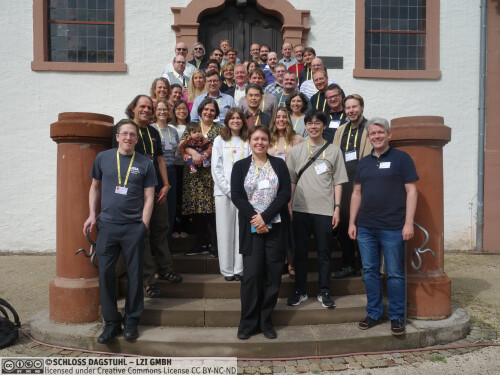
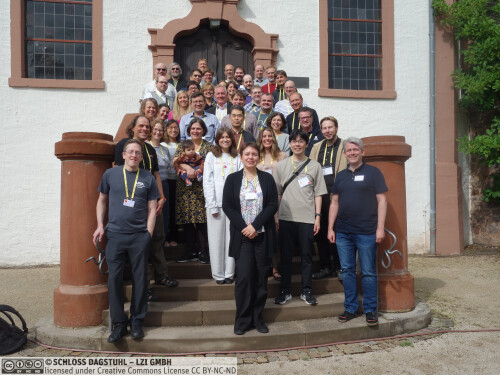
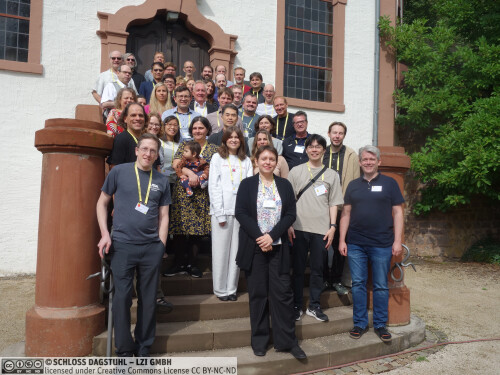
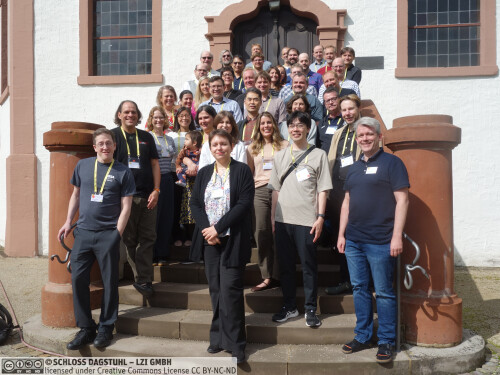
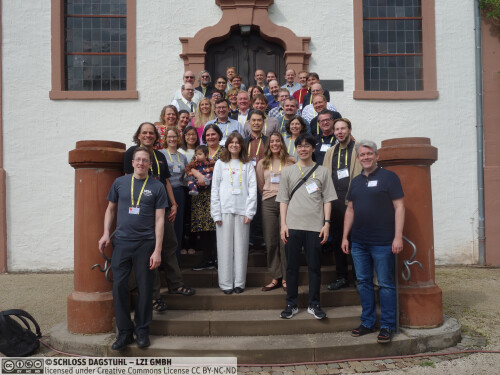
 Creative Commons BY 4.0
Creative Commons BY 4.0
